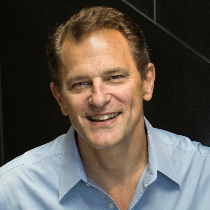 Prof & Dir G2P Research
Prof & Dir G2P Research
Robert C. Green, MD, MPH is Professor of Medicine (Genetics) at Harvard Medical School and a physician-scientist who directs the G2P Research Program at Brigham and Women’s Hospital and the Broad Institute. Dr. Green
is internationally recognized for research and policy efforts accelerating the implementation of genomic/precision medicine. Education and Training: Dr. Green graduated Amherst College and University of Virginia School
of Medicine, with MPH in epidemiology from Emory University School of Public Health. His specialty training was at Harvard Medical School residencies and he is board certified in both neurology and medical genetics. Research
Achievements: Dr. Green led the first experimental trials disclosing common complex disease risk (REVEAL Study) and the first prospective studies of direct-to-consumer genetic testing services (PGen Study). He currently
leads and co-leads the first NIH funded randomized trials of sequencing in adults (MedSeq Project), newborns (BabySeq Project), and active duty US military personnel (MilSeq Project). He created the concept of aggregate
penetrance of genomic variants in prospective population cohorts and is demonstrating the feasibility of genomic sequencing in healthy newborns, paving the way for humans to gain lifelong medical benefits from genomics.
With continuous funding from NIH for 26 years he has published more than 300 papers with an h index of 90. In 2014, he won the Coriell Prize for Scientific Achievement in Personalized Medicine, and in 2019 was named by
BIS Research as one of the 25 most influential voices in precision medicine. Since joining the Harvard Medical School faculty in 2011, the G2P research team has been awarded research support of over $49 million. Research
Leadership: Dr. Green recently co-chaired the Steering Committee of both the Clinical Sequencing Exploratory Research program (18 NIH grants, over 300 investigators), and the Steering Committee of the Newborn Sequencing
in Genomic Medicine and Public Health program (4 NIH grants, over 100 investigators) and is a co-investigator on the Boston site within the Electronic Medical Records and Genomics Network. He is Associate Director for Research
of Partners HealthCare Personalized Medicine and is leading the development of protocols for return of genomic results for the All of Us Research Program of the United States Precision Medicine Initiative and the Google/Verily
Project Baseline. Policy Leadership: Dr. Green is accelerating the worldwide implementation of medical genomics. He was lead author on the influential recommendations for managing incidental findings in clinical sequencing
from the American College of Medical Genetics and Genomics and contributing author on recommendations for managing incidental findings in research biobanks among participants and among family members of participants. He
is a Board Member of the Council for Responsible Genetics and works within the Global Alliance for Genomics and Health and the All of Us Research Program on designing efforts to return research information, particularly
genomic information, to research participants. Clinical Care: Dr. Green directs the Preventive Genomics Clinic at Brigham Health, providing evidence-based genomic and multi-omics evaluation to early adopters seeking to
anticipate and prevent future illness. Entrepreneurship: Dr. Green co-founded Genome Medical, a telegenomics technology and services company providing genetics expertise to patients, providers, employers and healthcare
systems. Presentations & Media: Scientific plenary presentations include American College of Medical Genetics/Genomics, Cold Spring Harbor, AGBT, European Society for Human Genetics and BioData World. Presentations
to business include Forbes Healthcare Summit, World Science Festival, Future of Genomic Medicine, Exponential Medicine, Festival of Genomics, Aspen Ideas Festival, SXSW, Asian Healthcare Leadership and JP Morgan. His work
and commentary have been featured on PBS television/radio, NBC Nightly News, CBS Sunday Morning, Today Show, CNBC, the Doctors, New York Times, Wall Street Journal, Time Magazine, New Scientist, FastCompany, GenomeWeb,
Gizmodo and Buzzfeed. Research findings from Genomes2People Research are highlighted in these podcasts, blog posts and videos. Research Support: Dr. Green’s research is supported by grant funding from the National
Institutes of Health, the Department of Defense, the Snite Foundation and the Franca Sozzani Fund for Preventive Genomics. Disclosures: Dr. Green receives compensation for advising the following companies: AIA, Applied
Therapeutics, Humanity, Verily; and is co-founder of Genome Medical, Inc, a technology and services company providing genetics expertise to patients, providers, employers and care systems.